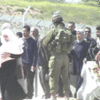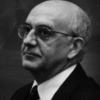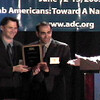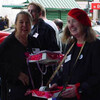
Hell on earth: Qalandia checkpoint
2 May 2002
Qalandia checkpoint is one of the largest Israeli military checkpoints in the occupied West Bank. This checkpoint is not located on a border, but between the Palestinian town Ramallah, Qalandia refugee camp, and the Palestinian town of ar-Ram. It separates Ramallah residents from southern Palestinian towns and the northern Palestinian neighbourhoods of Jerusalem. Israeli soldiers check identity cards. Read more about Hell on earth: Qalandia checkpoint




